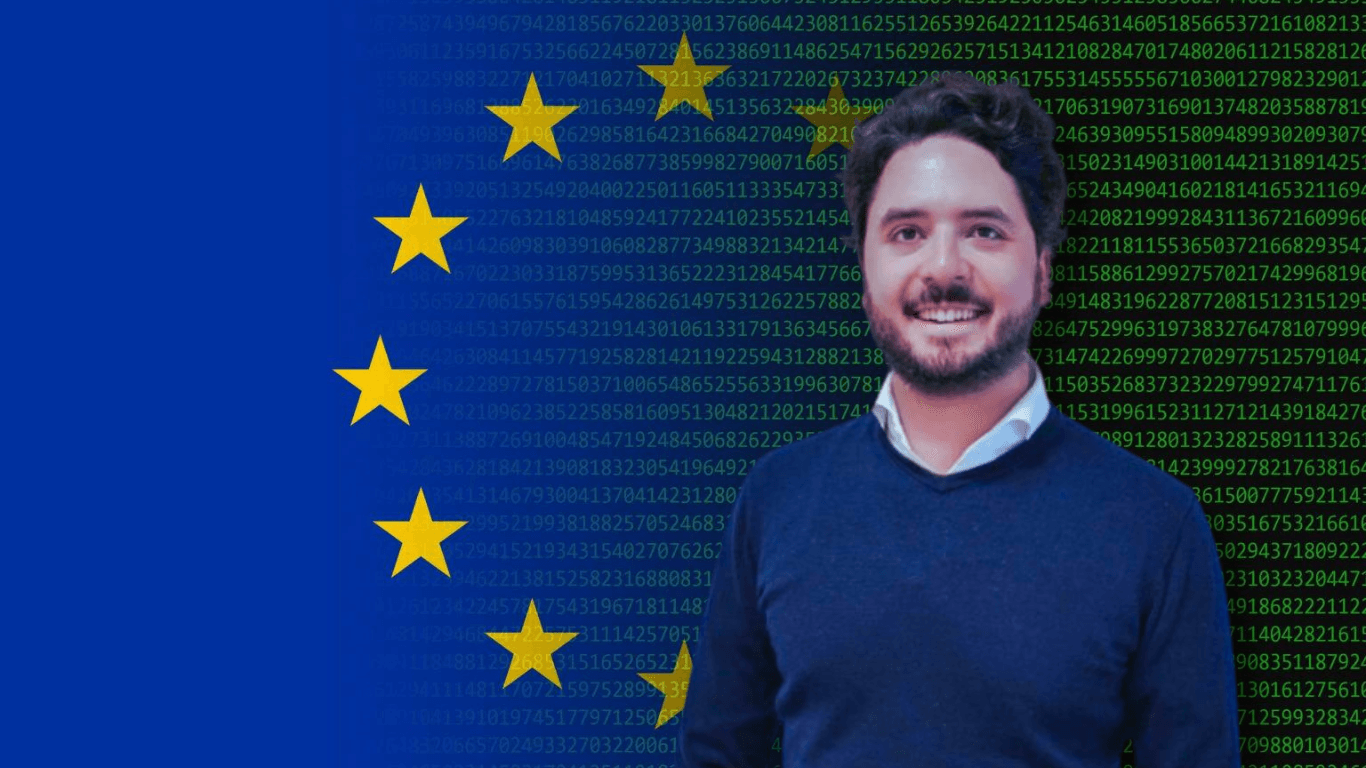
3.5 million euros in a seed round and the well-known Swedish investor EQT in the lead – that's where we take a closer look at the Munich startup Vidlab7. We learn that an AI startup offers videos generated using GenAI with fictional or human-like avatars for marketing and sales.
Wait, that sounds kind of familiar. In fact, this business model is reminiscent of that of the Hamburg startup Oxolo. The company, which Heiko Hubertz and Elisabeth L'Orange started in 2021, did exactly that: With the help of the startup's GenAI, companies, primarily e-commerce operators, could create AI-generated marketing videos on Oxolo's platform, with human-like avatars if desired .
“We were able to” because Oxolo surprisingly announced in August of this year that it was changing its business model: no more AI videos with human avatars. The trigger, explained founder L'Orange in an interview with Gründerszene, was that another pillar of the EU AI Act came into force on August 1, 2024. Accordingly, videos with avatars that look like real people must be marked as “deepfake”. That alone is bad for a startup that wants to sell stylish advertising videos and not deepfakes. As a result, customers were also unsettled. And the competition in China and the USA, which is not slowed down by European AI laws, is running away from them.
Read too
Why are the Munich founders of Vidlab7 now starting with the same idea?
We asked founder Fabian Beringer. The man is well versed in AI and the EU AI Act: in 2016, Beringer co-founded the AI startup e-bot7 as CEO and co-founder. “We offered artificial intelligence for customer service,” he explains. Above all, it was about helping to automate phone calls, chats and emails. “We then scaled the company up to around two hundred enterprise customers. We had 130 employees, and in 2021 we successfully sold the startup to a company in the US on the NASDAQ.”
Now Beringer is starting again with an AI startup – with very ambitious goals and without fear of regulations: “We really want to build something that is bigger than a unicorn and shows that it can also come from Europe, one to build a globally successful AI company.”
What is the EU AI Act?
The EU AI Act was passed at the beginning of 2024. With it, the EU wants to create a legal framework for the use of artificial intelligence in accordance with applicable fundamental rights and values. It is the first European AI law and has been gradually coming into force since mid-2024.
The EU AI Act includes rules for both the development, provision and use of artificial intelligence. Because the users of the technology can also be held responsible, not just the developers. In the worst case scenario, there could be severe penalties.
The EU AI Act distinguishes four risk classes for AI. The higher the risk potential, the more comprehensive the regulation:
- Verboten: Certain AI software is simply banned in the EU and may not be developed or used. This includes everything that is classified as a threat to people: such as systems for social scoring, biometric identification and analyzes such as facial recognition or cognitive behavioral manipulation. There are exceptions for law enforcement.
- Hochriskant: This includes AI applications that affect the health, safety or restriction of people's fundamental rights, for example in education, critical infrastructure or products that must meet EU safety regulations, such as toys, vehicles or medical devices.
- Limited risk: This includes generating AI systems such as chatbots. The providers are obliged to inform users about the artificially created content – text, audio or video.
- Minimal risk: Examples include AI-enabled video games or spam filters.
The EU AI Act has no separate chapter, no exclusive regulations specifically for startups, but there are some “special provisions for small and medium-sized enterprises” (SMEs), among which the regulation also includes startups. These include special exceptions and special rules to promote competition and innovation.
Fabian, asked directly: Don't you think the EU AI Act could be a problem for your products and your business model?
Fabian Beringer: No. I see it this way: Marketing and sales are not just about conveying a message, but about emotions. You want to convey the message to your customers in the cool, unusual, personalized and exciting way possible. One option is avatars: you can clone yourself and send personalized videos to customers. This greatly increases the conversion rate and sales – but only if the content generated by GenAI stands out from others and creates emotions, is unique and extremely personalized. This means: The videos should not only replicate real people, but the GenAI should be used to make the content as exciting as possible.
Like that?
You can either adapt the content so precisely to the customer that they say: This would not have been possible at all without AI. Or you work with modified, so-called fictional avatars that are so cool and exciting, especially weil they were created by an AI using prompts and would be unthinkable without AI. At the same time, you can customize the background of the videos and add sound effects or music to the videos. The scripts of the videos are also personalized to each customer, creating an experience like never before.
So you think it wouldn't be a problem for you to have to label videos because it's clear that they were made by an AI anyway. So you think the labeling requirement is okay?
I don't see it as a problem at all for us to add “AI content” because the content and videos are cool, funny, exciting and generate emotions in the recipient. But there should be the possibility of labeling. Labels directly in the video are not mandatory, however. The information could, for example, also be given by customers in emails or on customer websites. Customers must judge for themselves whether and in what form they want to provide the information. When it comes to human-generated content, I don't care whether it's labeled or not. I also recognize a “Wild West” town from Hollywood as a “set”, but that doesn’t make the film bad. The film “Avatar” or “Star Wars” is obviously completely or partially computer-generated, but still super exciting. You can also say in the prequel or end credits: Partially “AI generated”, and that has no negative impact on the viewer at all.
Read too
Wouldn’t that be the case if the word “deepfake,” which has consistently negative connotations, was on the videos?
According to some experts and our lawyer, who has been advising us on AI law for ten years and is one of the best in Europe, there is no need to use the word “deepfake”. What you generally always do is build a hint into the pixels so that the machine can recognize that this is content generated by GenAI. But it is not specified whether it has to say “Deepfake”. I also find the word very negative to terrible. I don’t see labeling the content as “AI generated” as a problem for us. Why: Because it’s about creating exciting content. AI offers a lot of new, great possibilities that didn't exist before. If you use it right, you should be proud of it.
You sold your first AI company to the USA. Don't you sometimes think: It would be easier to be there too?
This is a double-edged sword. I was recently in Los Angeles for two weeks and had the feeling: They can do a lot more, people think much bigger. Because there are fewer or no regulations, a lot of research comes from the USA or China. In China in particular, AI developers simply scrape everything that is available online and build their models with it. This is of course good in terms of technology development. On the other hand, without wanting to get too political: When I look at how some models are currently being “abused” to generate, in my opinion, really false and offensive content, that is definitely problematic. I'm proud that we're building an AI company with roots in Europe, although we also plan to expand into the US. Everything is happening very quickly right now.
That means you're pro AI laws?
No, it's about finding a healthy balance, but not over-regulating. As an entrepreneur, I always try to make the best of every situation, and in our case and with the current European legal situation that simply means: look at the act, then you look at your product, and then you know what you want to do have to build to make it fit. And that's exactly what we've done since we were founded. Above all, it is important that legislators are in close contact with the industry and the AI ecosystem so that there is clear coordination at the European level.
Read too
Do investors also see it as relaxed? You just raised. Were concerns about legislation an issue?
No, there were no concerns. Investors naturally ask: Have you informed yourself? But if you give honest answers and have a good plan and, as in our case, it's not a problem and you offer your product in accordance with the rules, then it's fine. Just like me as a founder, you keep yourself up to date. In Europe we shouldn't always go into the race with this fear. That's exactly what really holds us back in many places.
And another tip for investors on how to discover good and safe AI startups?
I think as an investor you have to be careful to look at companies that primarily solve a problem and add value. They don't just take ChatGPT, build a frontend over it and then say: “We're making the new LinkedIn content writing tool.” That's a cool story and certainly fun, but it's not the most innovative or best investment case. I also think you have to think carefully about which area and niche you want to invest in and remain flexible, as the market is developing rapidly. Here you have to constantly stay up to date so that you don't get thrown out. Knowing the market very well for a long time is extremely helpful. Every day there are new advances and research papers. I would like to see more founders, especially in Germany, dare to think extremely big and simply have more courage to tackle and do things so that there are more AI companies.
Read too
Source: https://www.businessinsider.de/gruenderszene/special/kuenstliche-intelligenz-im-startup/jeder-baut-gerade-ki-startups-aber-killt-der-ai-act-den-hype-ein-gruender-gibt-antworten/






